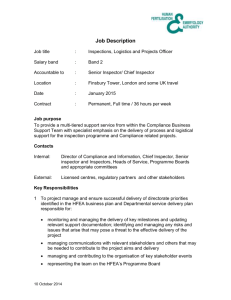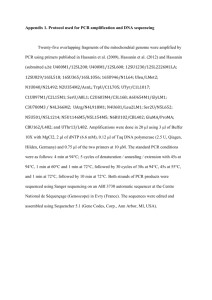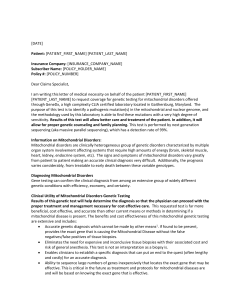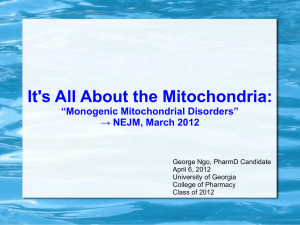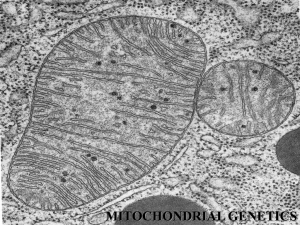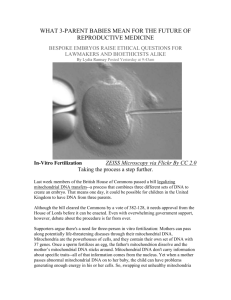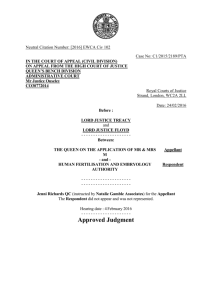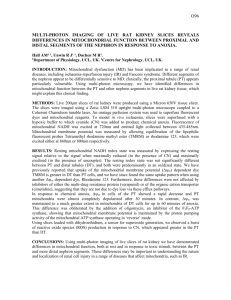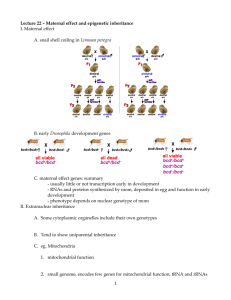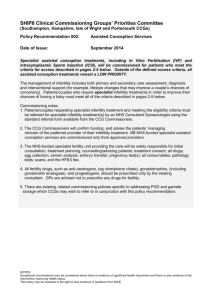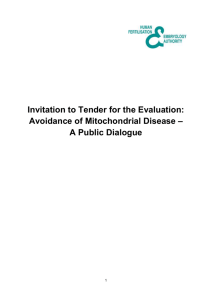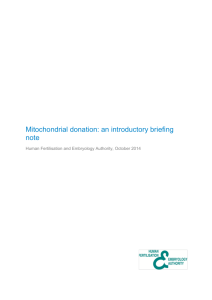BICA Statement Regards Parliament Approves Mitochondrial Transfer
advertisement
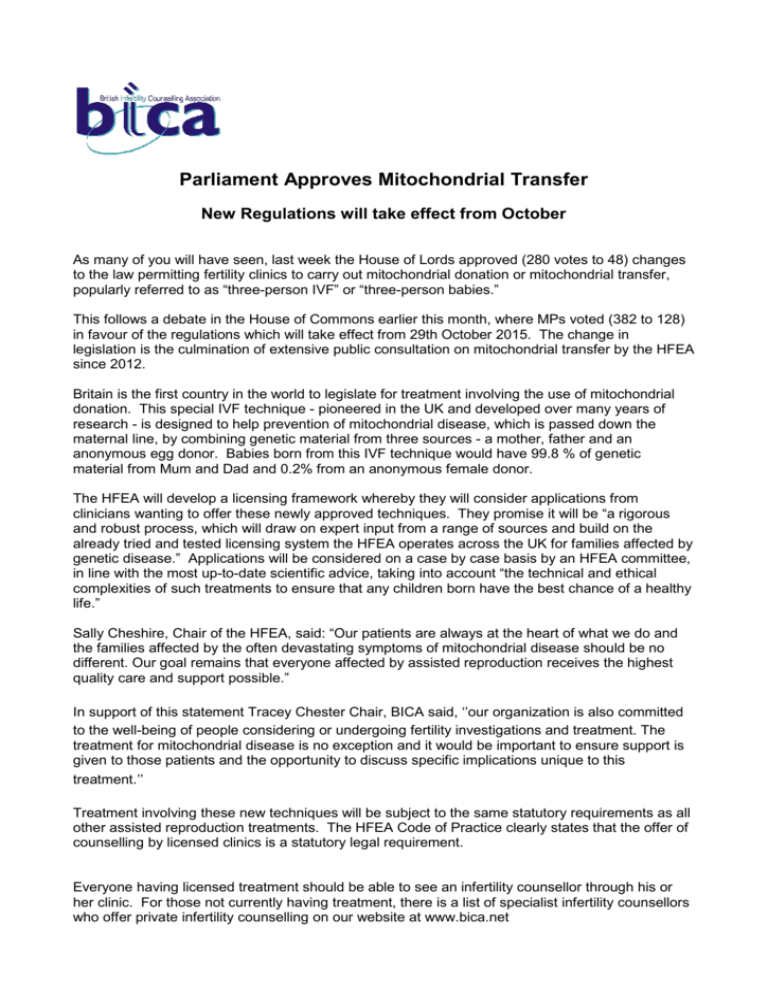
Parliament Approves Mitochondrial Transfer New Regulations will take effect from October As many of you will have seen, last week the House of Lords approved (280 votes to 48) changes to the law permitting fertility clinics to carry out mitochondrial donation or mitochondrial transfer, popularly referred to as “three-person IVF” or “three-person babies.” This follows a debate in the House of Commons earlier this month, where MPs voted (382 to 128) in favour of the regulations which will take effect from 29th October 2015. The change in legislation is the culmination of extensive public consultation on mitochondrial transfer by the HFEA since 2012. Britain is the first country in the world to legislate for treatment involving the use of mitochondrial donation. This special IVF technique - pioneered in the UK and developed over many years of research - is designed to help prevention of mitochondrial disease, which is passed down the maternal line, by combining genetic material from three sources - a mother, father and an anonymous egg donor. Babies born from this IVF technique would have 99.8 % of genetic material from Mum and Dad and 0.2% from an anonymous female donor. The HFEA will develop a licensing framework whereby they will consider applications from clinicians wanting to offer these newly approved techniques. They promise it will be “a rigorous and robust process, which will draw on expert input from a range of sources and build on the already tried and tested licensing system the HFEA operates across the UK for families affected by genetic disease.” Applications will be considered on a case by case basis by an HFEA committee, in line with the most up-to-date scientific advice, taking into account “the technical and ethical complexities of such treatments to ensure that any children born have the best chance of a healthy life.” Sally Cheshire, Chair of the HFEA, said: “Our patients are always at the heart of what we do and the families affected by the often devastating symptoms of mitochondrial disease should be no different. Our goal remains that everyone affected by assisted reproduction receives the highest quality care and support possible.” In support of this statement Tracey Chester Chair, BICA said, ‘’our organization is also committed to the well-being of people considering or undergoing fertility investigations and treatment. The treatment for mitochondrial disease is no exception and it would be important to ensure support is given to those patients and the opportunity to discuss specific implications unique to this treatment.’’ Treatment involving these new techniques will be subject to the same statutory requirements as all other assisted reproduction treatments. The HFEA Code of Practice clearly states that the offer of counselling by licensed clinics is a statutory legal requirement. Everyone having licensed treatment should be able to see an infertility counsellor through his or her clinic. For those not currently having treatment, there is a list of specialist infertility counsellors who offer private infertility counselling on our website at www.bica.net Sophia Parsons 6th March 2015 BICA, Registered Charity No 803743, is the only professional association for infertility counsellors and counselling in the UK, seeking to promote the highest standards of counselling for those considering or undergoing fertility investigations and treatment. BICA accredits specialist infertility counsellors and has a list of infertility counsellors on their website at www.bica.net.
